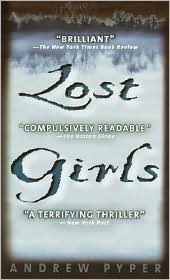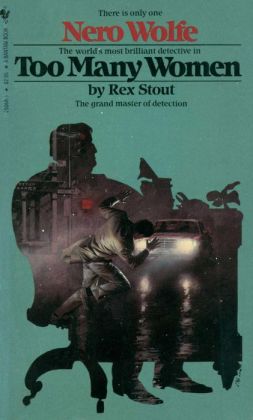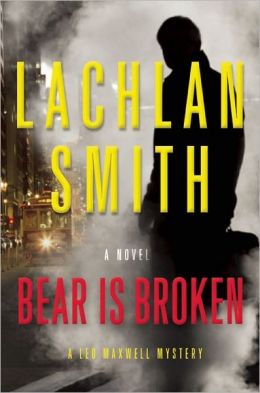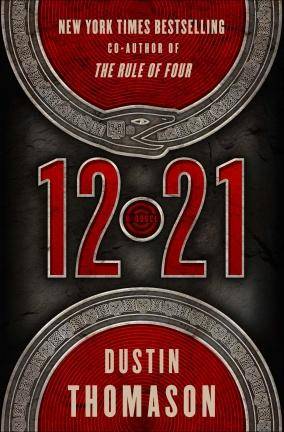 It's hard to believe summer is over; before you know it, you'll be composing a wish list for Santa. I've been working on my own list for what seems like forever, because my Santa, a husband who has known me for 25 years, has a head full of ideas about what books I'd like. Bad ideas. An idea will start out on track (he knows I'm interested in sports, politics, and current events) before derailing and heading into the weeds (but I really cannot get into a biography of former pro basketball player/North Korea visitor/oddball Dennis Rodman). Wouldn't you think he'd automatically know this?
It's hard to believe summer is over; before you know it, you'll be composing a wish list for Santa. I've been working on my own list for what seems like forever, because my Santa, a husband who has known me for 25 years, has a head full of ideas about what books I'd like. Bad ideas. An idea will start out on track (he knows I'm interested in sports, politics, and current events) before derailing and heading into the weeds (but I really cannot get into a biography of former pro basketball player/North Korea visitor/oddball Dennis Rodman). Wouldn't you think he'd automatically know this? | |
| Because who wouldn't want to see if his or her head would fit through the hole in that chair |
I appreciate good food and drink––and crime fiction characters who do, too.
One of my favorite old series features Rex Stout's Nero Wolfe. Wolfe is a gargantuan genius who loves food, books, and orchids and refuses to leave his New York City brownstone on business. His side kick, Archie Goodwin, provides the witty narration. Books I liked best include Too Many Cooks, Some Buried Caesar, The Doorbell Rang, and The Silent Speaker.
Italian crime fiction is a good bet for mouth-watering food. Take Andrea Camilleri's Salvo Montalbano books. They are best read pinned open with one arm while the other arm stays busy hoisting rigatoni and a bold Italian red mouthward. In addition to the food and Sicilian atmosphere, I like Montalbano, a world-weary but decent man, and his colleagues. The latest, A Beam of Light (translated from the Italian by Stephen Sartarelli; Penguin Books, September 1, 2015), finds three crimes requiring Montalbano's attention. On the personal front, Montalbano's eye strays from long-time lover Livia to a gallery owner named Marian.
.jpg) |
| No, thank you, I'd prefer to remain ignorant. |
I can't say I first think of the English when the topic is good fictional food; in fact, what initially pops into my mind is James Hamilton-Paterson's weird and wacky Cooking with Fernet Branca. Its part-time narrator, the Englishman Gerald Samper, is a ghostwriter for celebrities ("an amanuensis to knuckleheads") and an amateur cook. He lives in Tuscany, although his kitchen seems to be located in hell. Ice cream with garlic and Fernet Branca and mussels in chocolate are bad enough; consider yourself lucky my divulging the ingredients of Alien Pie would be a spoiler. While Samper's recipes are atrocious, this book is a treat.
 At first glance, some books of crime fiction seem unlikely to stimulate the appetite. No matter, John Harvey's food descriptions in his Charlie Resnick police procedurals always send me to the kitchen. At home in Nottingham, that melancholy cop tends to his cats, listens to jazz (readers get educated), and rustles up a delicious sandwich or a cup of decent coffee. Wait, we can't forget the paper towels; one of Resnick's men says that if he ate as messily as Resnick, his wife would make him sit out in the garage. Harvey's characters are no strangers to life's miseries or ironies. I like that about them and the books' look at their relationships and the social issues in post-Thatcher England. The first one is Lonely Hearts.
At first glance, some books of crime fiction seem unlikely to stimulate the appetite. No matter, John Harvey's food descriptions in his Charlie Resnick police procedurals always send me to the kitchen. At home in Nottingham, that melancholy cop tends to his cats, listens to jazz (readers get educated), and rustles up a delicious sandwich or a cup of decent coffee. Wait, we can't forget the paper towels; one of Resnick's men says that if he ate as messily as Resnick, his wife would make him sit out in the garage. Harvey's characters are no strangers to life's miseries or ironies. I like that about them and the books' look at their relationships and the social issues in post-Thatcher England. The first one is Lonely Hearts. |
| Here's a comforting thought. |
Now, I can bore myself to sleep by reading the instruction book for my washing machine, but this can be torture. So, I usually give the instruction book idea a pass and instead read a suspenseful novel with one eye open. That way, my goal of falling asleep is already half accomplished. Does it impress you that I figured this out as a kid? Actually, suspense is best read with one eye in bed; there's something about the reduced field of vision that makes the tension bearable. For bedtime purposes, the book should not provoke the sort of fear that sends you diving under the bed, but, rather, should make you cringe and beg the character to rethink what he or she is doing, such as pawing through a murder suspect's dresser drawers while the suspect is, naturally, beetling home early because he forgot something. One example of this cringing and begging sort of one-eyed read is Joyce Carol Oates's Jack of Spades (Mysterious Press, May 2015), in which the alter ego of best-selling crime-fiction writer Andrew J. Rush steps in to protect a secret.
Another route to dreamworld is reading a book whose accelerated pace leaves me feeling so depleted by its end I can't help but nod off. Duane Swierczynski's Canary (Mulholland Books, February 2015) fits into this category. Swierczynski is known for his stomp-on-the-gas pacing, plot twists, and unlikely heroes/heroines. In Canary, his unlikely heroine is college honors student Sarie Holland, who is forced to become a confidential informant for Philadelphia narcotics cops. Reading Swierczynski makes me wonder what it would be like to share a meal with him; whether we'd eat by stopwatch.
 |
| Always only too happy to encounter Moby-Dick in my reading |
If sleep is hopeless, but I'm really tired, give me a book with crisp prose and an interesting setting. Malcolm Mackay's Glasgow Trilogy (The Necessary Death of Lewis Winter, How a Gunman Says Goodbye, and The Sudden Arrival of Violence) is suitable. While these books have received international critical acclaim, they were only published in the United States by Mulholland Books last April. They involve a Glasgow crime syndicate trying to eliminate the competition. At their heart are two hitmen: the legendary Frank MacLeod and the up-and-coming Calum MacLean. Mackay's writing is clear and easy to follow, and he brings the criminal underbelly of Glasgow alive. Man, what lives these characters lead. I read this trilogy three nights straight because I wanted to know what happens to Frank and Calum.
That's it for my 'splaining today. Good luck with your own readersplanations.

























